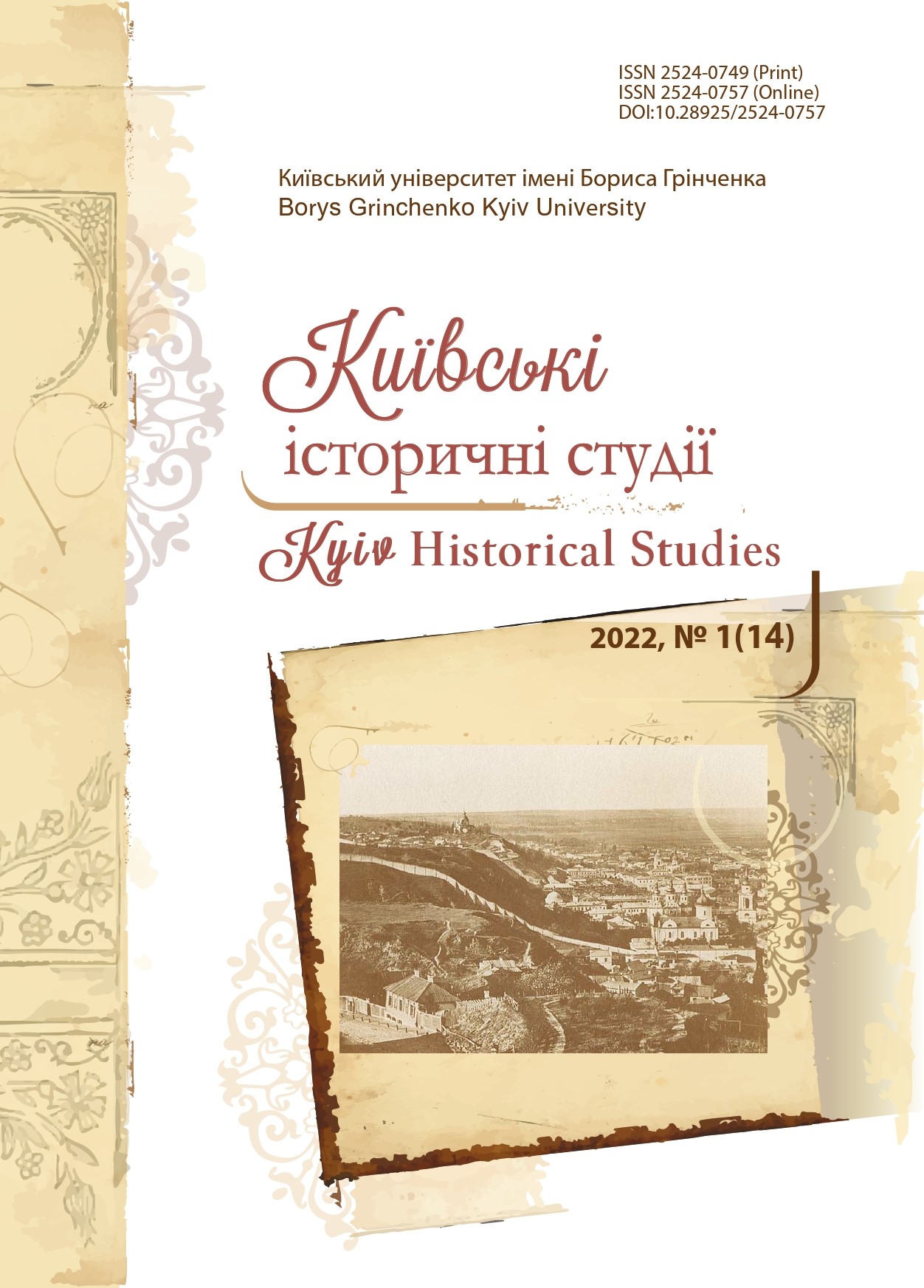“Wehrmacht needs soldiers”: Upbringing and education under the influence of Nazism
DOI:
https://doi.org/10.28925/2524-0757.2022.15Keywords:
masculinity, national-socialism, political education, political pedagogy, Third ReichAbstract
Studying the experience of implementing educational and upbringing changes of such a totalitarian state as the Third Reich allows us to look differently at any reformist actions in our country. This experience is especially useful in combination with the study of the activities of the Ministry of Education and Propaganda of the Third Reich. The purpose of the article is to study the place of Nazi propaganda given to men in the “national community”. Applying a socio-cultural approach in combination with a gender-sensitive methodology will allow us to rethink the existence of Germans of the Third Reich through the prism of dominant gender roles in society. As a result of the study, it is found that the concept of creating a new image of “man” helped the Nazis in their quest to achieve an ideal society and “national community”. An intermediate link in this system is the reform of the education and upbringing of the Third Reich as well as the introduction of a number of youth organizations, which aimed to educate young people in obedience in the spirit of the ideas of National Socialism. Participation in these organizations, as well as further service in the army, became the responsibility of the young German. All parts of the education system are undergoing changes: undesirable teachers have been removed from teaching, school and university programs are filled with ideology, and education is carried out in accordance with ideals. The militarized model of masculinity is becoming increasingly important in the state. Such personal qualities as strength, courage, endurance, as well as the willingness to sacrifice their lives for the benefit of the state become the invariable characteristics of a true German.
Downloads
References
Voropaiev, S. (2005). Entsiklopediia Tretiego Reykha. Moscow: Lokid-Press [in Russian].
Davlietov, O. (2010). Bernkhard Rust – vid vchytelia veimarskoi doby do ministra osvity, nauky ta kultury Tretioho Reikhu: shtrykhy politychnoho portretu [Elektronnyi resurs]. Pivdennyi arkhiv. Istorychni nauky, 31–32, 122–129 [in Ukrainian]. http://nbuv.gov.ua/UJRN/Pain_2010_31-32_15
Ermakov, A. M. (2011). Yozef Gebbels i konstruirovanie natsistskoi modeli maskulinnosti. Almanakh gendernoi istorii Adam i Eva, 19, 63–96 [in Russian].
Kultaieva, M. (2018). Filosofiia osvity i vykhovannia Tretioho Reikhu: vytoky, polityko-ideolohichni konteksty ta kontseptualni konstrukty. Filosofiia osvity, 1, 25–87 [in Ukrainian].
http://nbuv.gov.ua/UJRN/PhilEdu_2018_1_4 DOI: https://doi.org/10.31874 / 2309-1606-2018-22-1-25-87 Makarova, L. M. (2007). Natsional-sotsializm v gendernom izmerenii. Dialog so vremenem, 19, 234–252 [in Russian].
Shirer, U. (2002). Berlinskii dnevnik. Evropa nakanune Vtoroi mirovoi voyny glazami amerikanskogo korrespondenta. Igorevskiy L. A.(Trans.), ZAO Tsentrpoligraf [in Russian].
Carney, A. B. (2010). Victory in the Cradle: Fatherhood and the Family Community in the Nazi Schutzstaffel. Candidate’s thesis, Florida State University Libraries [in English].
Haste, С. (2001). Nazi Women: Hitler’s Seduction of a Nation. Channel 4 Books [in English]. Ungerer, T. (1998). A Childhood under the Nazis. Roberts Rinehart Pub [in English].
Published
How to Cite
Issue
Section
License
Copyright (c) 2022 Вікторія Ковальчук

This work is licensed under a Creative Commons Attribution-NonCommercial-ShareAlike 4.0 International License.
Authors who publish in this journal retain the right of authorship of the work and give to the journal right of first publication of this work under the conditions of Creative Commons: Attribution-NonCommercial-ShareAlike 4.0 International (CC BY-NC-SA 4.0), which allows others freely distribute the work published with reference to the authors of the original work and the first publication of this magazine.














